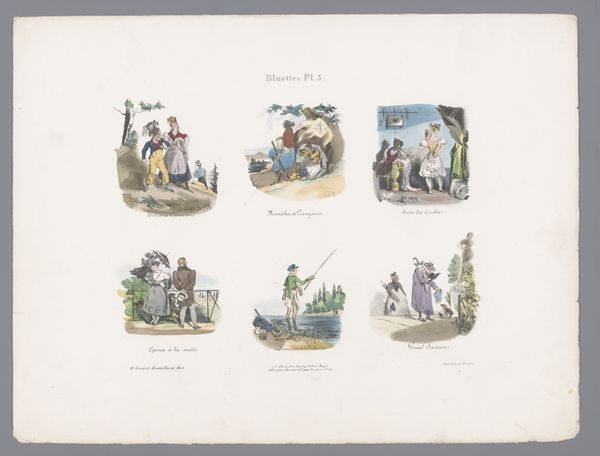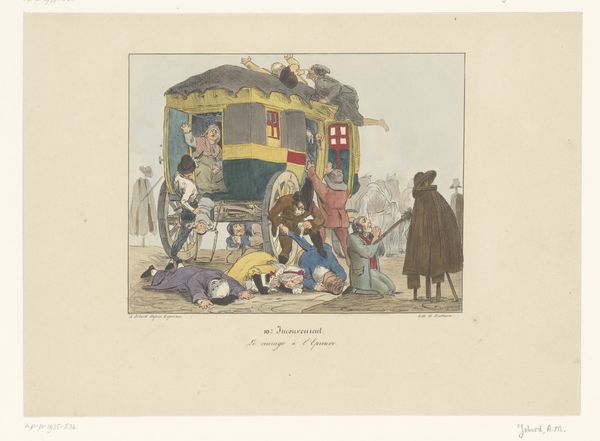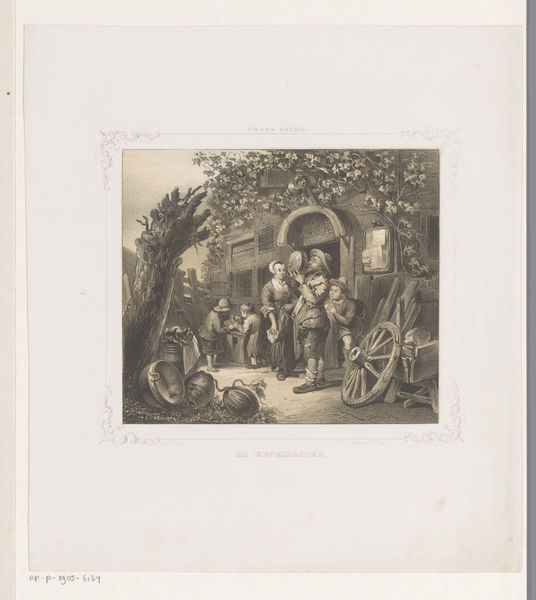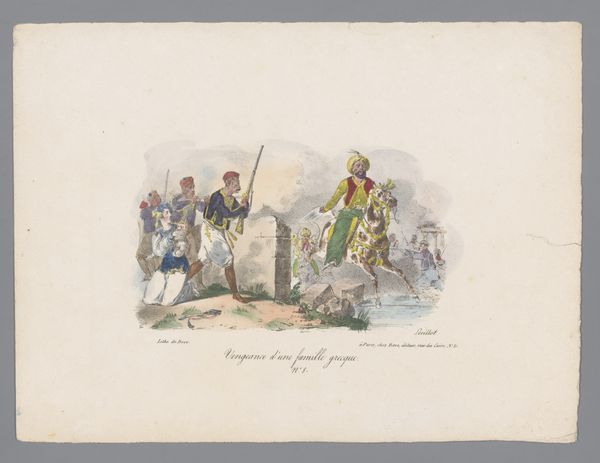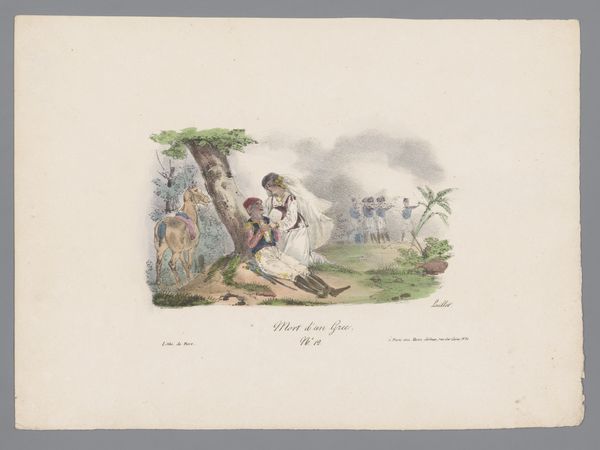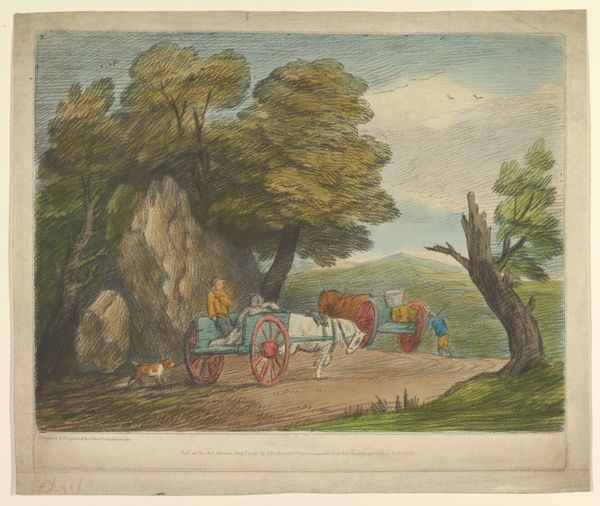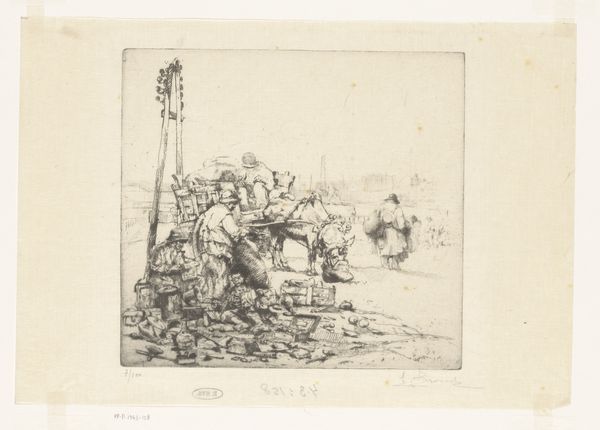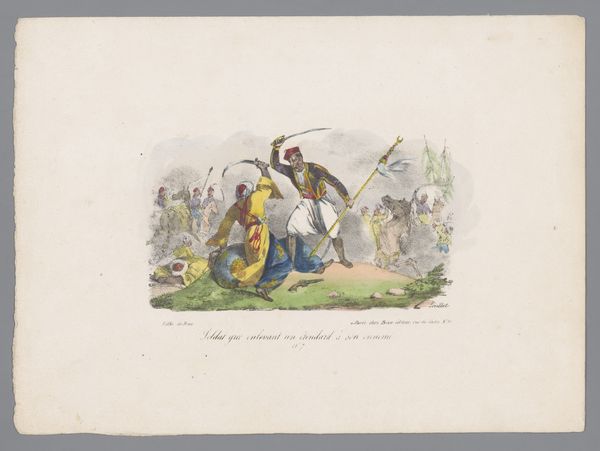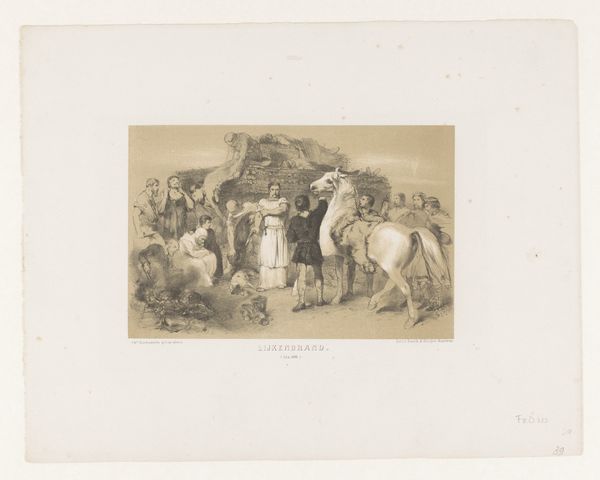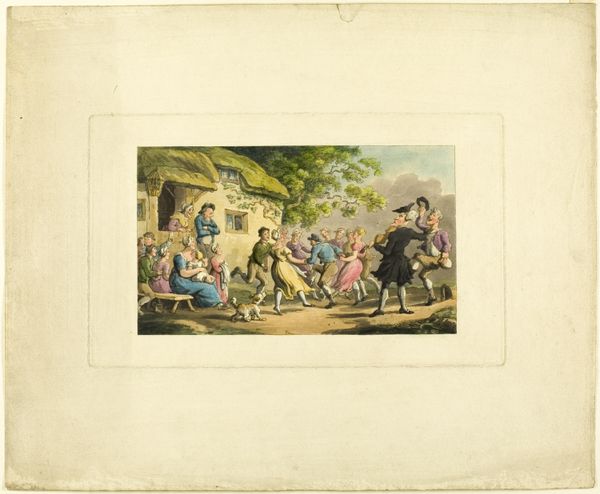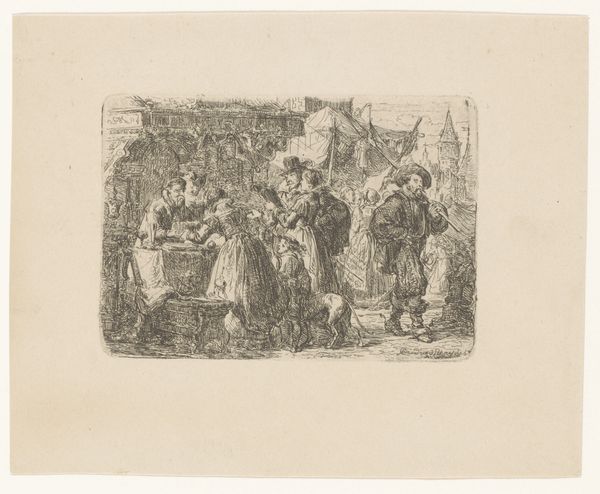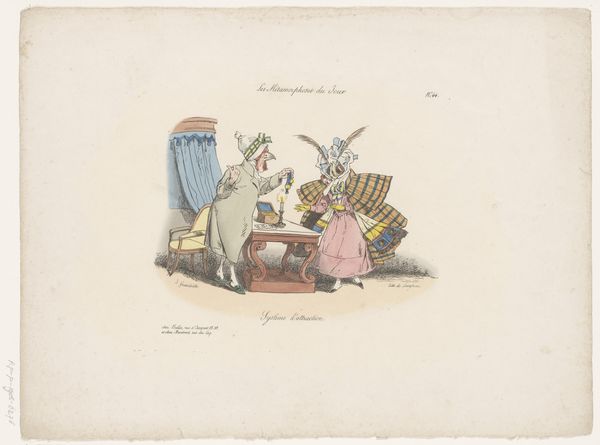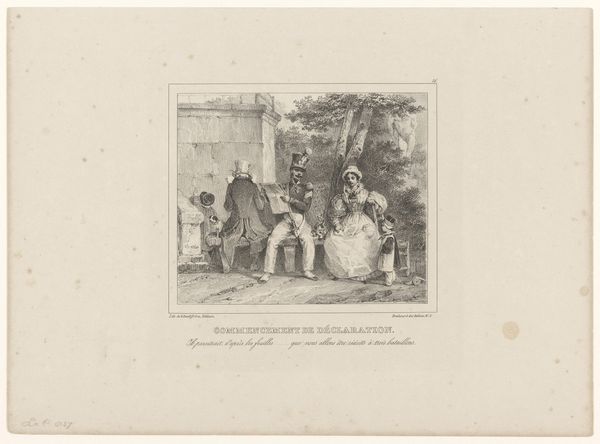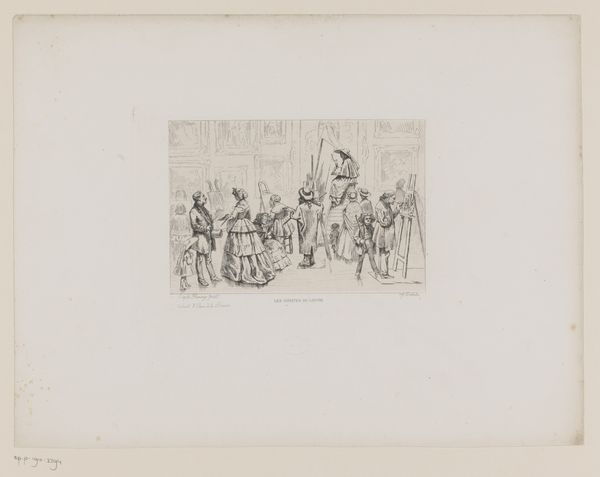
drawing, print, watercolor, pencil
#
drawing
#
water colours
# print
#
caricature
#
landscape
#
figuration
#
watercolor
#
romanticism
#
pencil
#
watercolour illustration
#
genre-painting
#
watercolor
Dimensions: 6 7/8 x 8 in. (17.46 x 20.32 cm) (image)
Copyright: Public Domain
Editor: This is "Caricature. No. 6. Les Amateurs de Paysage," a print with watercolor and pencil by Eugène-Louis Lami, made in 1828. It depicts a group of people painting outdoors. I notice a satirical, almost silly mood in the depiction of these artists and their families. How do you interpret this work? Curator: It's interesting to consider this through the lens of class and access. The leisure time to pursue landscape painting, the attire, the very act of publicly displaying artistic aspirations...these were often signifiers of a particular social standing. What might Lami be suggesting about the relationship between art and societal hierarchies of his time? Editor: That's interesting, I hadn't considered the social implications. It does seem like a jab at the bourgeoisie and their artistic hobbies. The composition, with its crowded scene and focus on the artists' appearances, feels almost mocking. Curator: Exactly. Consider also the Romantic period's fascination with nature. While some artists sought sublime, awe-inspiring landscapes, Lami presents a rather different perspective. Do you see an idealization of nature here, or something else entirely? What could be said about landscape as social performance rather than pure communion? Editor: No, not at all. It feels more like a commentary on the performative aspect of appreciating nature and art, which sort of resonates with contemporary debates about who gets to define art and culture. Curator: Precisely. It makes you question the motivations and perhaps the authenticity of those engaging in these activities, connecting to discussions of privilege, appropriation, and the societal expectations placed on different social groups. How do you think this resonates with art created today? Editor: This definitely gives me a new perspective on Romantic art! I always associated it with sincerity, but this challenges that assumption. Curator: Indeed, seeing art as a product and reflection of social dynamics rather than pure creative expression is very relevant in today's world.
Comments
No comments
Be the first to comment and join the conversation on the ultimate creative platform.
